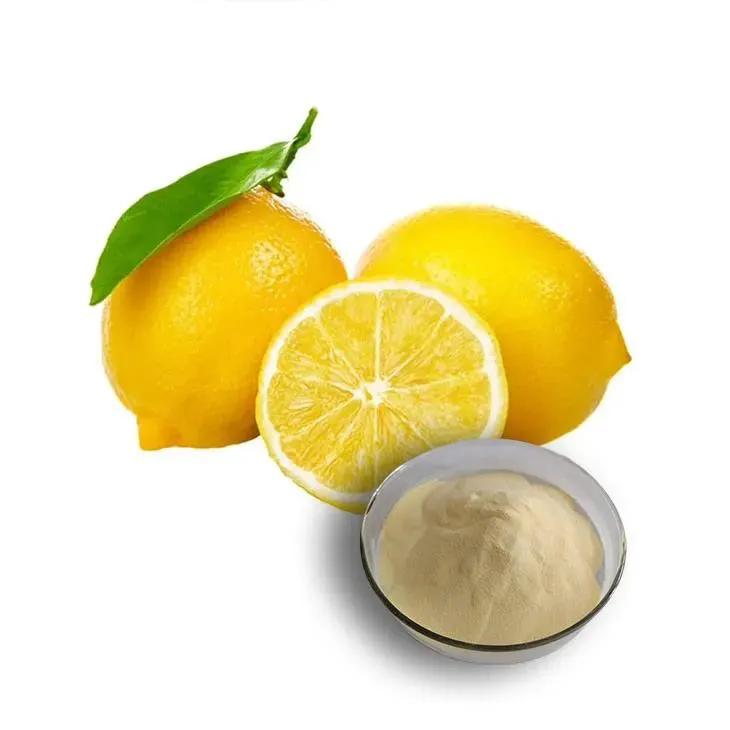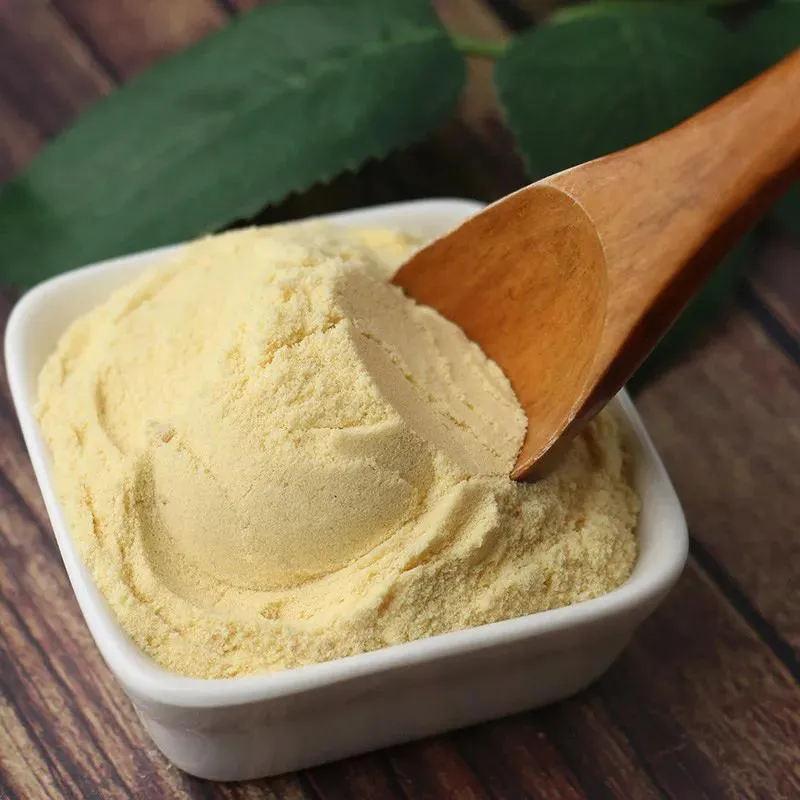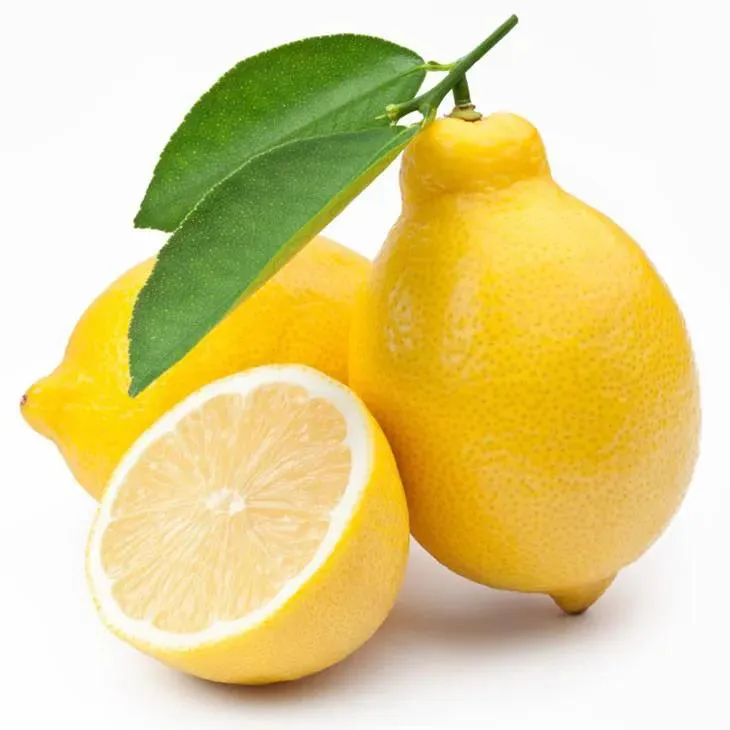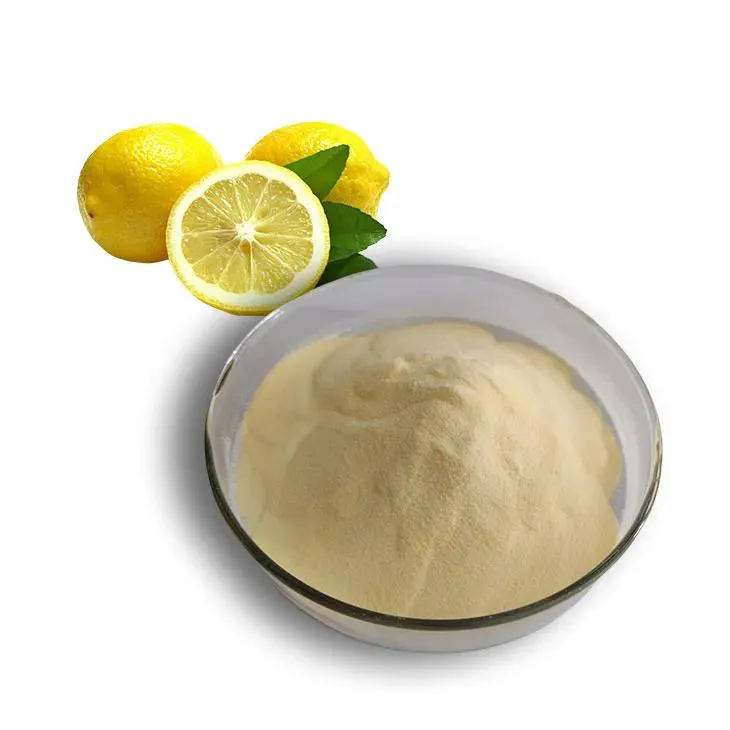- 0086-571-85302990
- sales@greenskybio.com
The best method for extracting lemon juice powder.
2024-12-01

1. Introduction
Lemon Juice Powder is a versatile ingredient that can be used in a variety of applications, from culinary uses to cosmetic and health products. Extracting high - quality Lemon Juice Powder requires careful consideration of several factors and the use of appropriate methods. In this article, we will explore the best ways to extract Lemon Juice Powder, ensuring both flavor and quality are maintained.

2. The importance of starting materials
The quality of lemons: The first and most crucial factor in extracting lemon juice powder is the quality of the lemons themselves. Fresh, ripe lemons are ideal. Lemons that are overly ripe may have a fermented taste, while unripe lemons lack the full - flavored citrus profile. Look for lemons with smooth, firm skins and a bright yellow color. They should feel heavy for their size, indicating a high juice content.
Source and origin: The origin of the lemons can also impact the flavor of the juice powder. Lemons grown in different regions may have varying levels of acidity, sweetness, and aroma. For example, lemons from the Mediterranean are known for their intense flavor, while those from other regions may have a more mild profile. Organic lemons are also a preferred choice as they are less likely to contain pesticides or other contaminants that could affect the final product.

3. Manual extraction methods
3.1 Hand - squeezing
Procedure:
- Wash the lemons thoroughly under running water to remove any dirt or debris.
- Roll the lemons on a hard surface, applying gentle pressure. This helps to break up the internal membranes and release more juice.
- Cut the lemons in half crosswise.
- Use a handheld citrus juicer or simply squeeze the lemon halves by hand over a bowl or container. Make sure to extract as much juice as possible.
- It is a simple and inexpensive method that requires no special equipment other than a basic citrus juicer or just your hands.
- It allows for a more natural extraction process, which some people believe preserves the integrity of the lemon flavor.
- The extraction process can be time - consuming, especially if a large quantity of lemon juice is needed.
- The yield may not be as high as with other methods, as it can be difficult to extract all the juice by hand.
3.2 Using a manual press
Procedure:
- Wash the lemons as before.
- Cut the lemons into quarters or eighths, depending on the size of the press.
- Place the lemon pieces into the manual press and apply pressure gradually. The juice will be extracted into a collection container below.
- It can extract more juice compared to hand - squeezing, especially if the press is of good quality.
- It is still a relatively simple and cost - effective method.
- Some manual presses may require more physical effort to operate, which can be tiring if a large amount of juice needs to be extracted.
- It may not be as efficient as some mechanical methods for very large - scale extractions.

4. Mechanical extraction methods
4.1 Electric citrus juicers
Procedure:
- Wash the lemons.
- Depending on the type of electric juicer, either cut the lemons in half or leave them whole.
- Place the lemon(s) into the juicer and turn it on. The juicer will automatically extract the juice into a separate container.
- They are very efficient and can extract a large amount of juice in a short time.
- They are easy to use, requiring minimal effort from the user.
- Some electric juicers can separate the juice from the pulp, seeds, and other solids, resulting in a cleaner juice.
- Electric juicers can be relatively expensive, especially high - end models.
- Some models may not be able to extract all the juice from the lemons, leaving a small amount of residual juice in the pulp.
4.2 Centrifugal juicers
Procedure:
- Prepare the lemons by washing them.
- Cut the lemons into smaller pieces if necessary.
- Feed the lemon pieces into the centrifugal juicer. The juicer spins at a high speed, separating the juice from the solids through centrifugal force.
- They are fast and can handle a large volume of lemons quickly.
- They are often more affordable than some other types of electric juicers.
- The high - speed spinning can generate heat, which may potentially affect the flavor and nutritional quality of the juice.
- They may not be as effective at separating the juice from the pulp as some other juicers, resulting in a slightly pulpy juice.
4.3 Masticating juicers
Procedure:
- Wash the lemons well.
- Cut the lemons into appropriate - sized pieces for the juicer.
- Slowly feed the lemon pieces into the masticating juicer. The juicer chews and squeezes the lemons to extract the juice.
- They are known for their high extraction efficiency, often able to extract more juice from the lemons compared to other types of juicers.
- They operate at a slower speed, which generates less heat and is less likely to damage the nutrients and flavor of the juice.
- Masticating juicers are generally more expensive than centrifugal juicers.
- They are often slower in operation, especially when dealing with a large quantity of lemons.

5. Concentration and drying methods
5.1 Evaporation
Procedure:
- Pour the freshly extracted lemon juice into a shallow, wide - mouthed pan. Make sure the pan is made of a suitable material such as stainless steel.
- Place the pan over low heat. Stir the juice occasionally to prevent it from burning. The heat will cause the water in the juice to evaporate slowly.
- Continue the process until the juice has reached the desired concentration. This can be determined by measuring the viscosity or by using a refractometer.
- It is a simple and straightforward method that does not require any specialized equipment other than a heat source and a pan.
- It can be done at home with basic kitchen tools.
- The process can be time - consuming, especially if a large amount of juice needs to be concentrated.
- There is a risk of overheating the juice, which can cause the flavor to deteriorate.
5.2 Freeze - drying
Procedure:
- First, the lemon juice needs to be pre - frozen. This can be done by pouring the juice into suitable containers and placing them in a freezer until the juice is completely frozen.
- Once frozen, the juice is placed in a freeze - drying machine. The machine will gradually remove the water from the frozen juice through sublimation, converting the ice directly into vapor without passing through the liquid phase.
- It is an excellent method for preserving the flavor, aroma, and nutritional content of the lemon juice. Since the process occurs at low temperatures, there is minimal damage to the sensitive components of the juice.
- It results in a high - quality lemon juice powder with a fine texture.
- Freeze - drying machines are expensive and not commonly available in home kitchens. This method is more suitable for commercial production.
- The process can be energy - intensive and time - consuming, depending on the quantity of juice being freeze - dried.
5.3 Spray - drying
Procedure:
- The lemon juice is first mixed with a suitable carrier material such as maltodextrin. This helps in the drying process and improves the stability of the final powder.
- The mixture is then pumped through a nozzle into a drying chamber. Hot air is blown into the chamber, which quickly dries the droplets of the juice - carrier mixture into powder form.
- It is a very fast method of drying, which is suitable for large - scale production.
- The resulting powder has a good flowability and can be easily packaged and stored.
- The high temperature used in the process can cause some loss of flavor and nutritional value.
- It requires specialized equipment and is more complex than some other drying methods.
6. Quality control and considerations
Testing for acidity: Lemon juice powder should have a consistent level of acidity. This can be measured using a pH meter or titration methods. The appropriate acidity level ensures the flavor and preservation of the powder. For example, a pH range of 2 - 3 is typical for lemon juice powder.
Checking for contaminants: It is essential to check for contaminants such as pesticides, heavy metals, and microbial organisms. This can be done through laboratory testing. Organic lemons and proper handling during extraction and processing can help reduce the risk of contamination.
Flavor and aroma evaluation: The final lemon juice powder should have a characteristic lemon flavor and aroma. Sensory evaluation by trained tasters can be used to ensure that the powder meets the expected quality standards. Any off - flavors or odors may indicate problems during extraction or drying.
7. Conclusion
Extracting lemon juice powder involves a series of steps, from choosing the right lemons to using appropriate extraction and drying methods. Each method has its own advantages and disadvantages, and the choice depends on factors such as scale of production, cost, and desired quality. By carefully considering these factors and following the best practices, it is possible to obtain high - quality lemon juice powder with excellent flavor and nutritional value.
FAQ:
Q1: What are the basic steps for extracting lemon juice powder?
First, squeeze fresh lemons to obtain lemon juice. Then, you can use methods like evaporation or freeze - drying. For evaporation, heat the lemon juice gently to evaporate the water content until a powder - like residue is left. In freeze - drying, the lemon juice is frozen first and then the ice is removed through sublimation, leaving behind the lemon juice powder.
Q2: Which method is more suitable for home - made lemon juice powder extraction?
Evaporation can be a more accessible method at home. You can use a shallow pan and heat the lemon juice on low heat. However, it requires careful monitoring to prevent burning. Freeze - drying usually requires specialized equipment which may not be available at home.
Q3: How can we ensure the quality of the lemon juice powder during extraction?
Start with fresh and high - quality lemons. Avoid over - heating during evaporation as it can cause the loss of some volatile compounds and affect the flavor. If using any additives or preservatives, make sure they are food - grade and used in appropriate amounts.
Q4: Are there any modern techniques for extracting lemon juice powder?
Yes, in addition to traditional evaporation and freeze - drying, there are some new techniques in the food industry. For example, spray - drying, where the lemon juice is sprayed into a hot drying chamber in a fine mist, and the water evaporates quickly, leaving the powder. This method can be more efficient in large - scale production.
Q5: What factors can affect the flavor of the extracted lemon juice powder?
The quality of the lemons used is crucial. Lemons that are not fully ripe may have a different flavor profile. Also, the extraction method can play a role. If the process is too harsh, such as high - temperature and long - time heating in evaporation, it can cause flavor degradation. Additionally, any contamination during the process can also impact the flavor.
Related literature
- The Science of Juice Powder Extraction"
- "Lemon Juice Processing: Modern Methods and Quality Control"
- "Efficient Extraction of Fruit Juice Powders: A Review"
- ▶ Hesperidin
- ▶ citrus bioflavonoids
- ▶ plant extract
- ▶ lycopene
- ▶ Diosmin
- ▶ Grape seed extract
- ▶ Sea buckthorn Juice Powder
- ▶ Beetroot powder
- ▶ Hops Extract
- ▶ Artichoke Extract
- ▶ Reishi mushroom extract
- ▶ Astaxanthin
- ▶ Green Tea Extract
- ▶ Curcumin Extract
- ▶ Horse Chestnut Extract
- ▶ Other Problems
- ▶ Boswellia Serrata Extract
- ▶ Resveratrol Extract
- ▶ Marigold Extract
- ▶ Grape Leaf Extract
- ▶ blog3
- ▶ blog4
-
The best lemon juice powder in nature.
2024-12-01
-
Organic Vitamin K2 Powder Suppliers
2024-12-01
-
Bulk purchase of L - tyrosine.
2024-12-01
-
Vitamin K2 Manufacturers
2024-12-01
-
100% Pure Natural Rutin.
2024-12-01
-
Chinese Citrus Bioflavonoid Suppliers.
2024-12-01
-
Astaxanthin
2024-12-01
-
Moringa powder
2024-12-01
-
Peppermint Oil
2024-12-01
-
Oat Straw Extract Powder
2024-12-01
-
Ginseng Root Extract
2024-12-01
-
Fig Extract
2024-12-01
-
Citrus Aurantium Extract
2024-12-01
-
Pomegranate Extract
2024-12-01
-
Plantain extract
2024-12-01
-
Black Rice Extract
2024-12-01





















